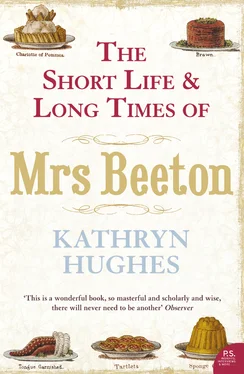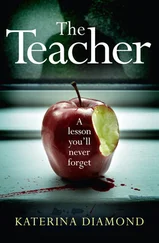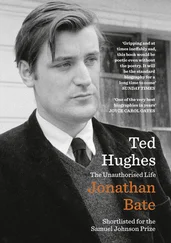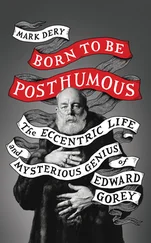Your devoted,
BELLA MAYSON
Burn this as soon as perused.
Either in response to this letter or a slightly earlier lost one, Sam acknowledges with obvious relief that Isabella does, finally, seem able to see that her relationship with her parents would need to change once they were married if either of them were to have a chance of being happy.
Bouverie
Tuesday aftn
My dearest Bella,
I was most delighted with your kindest of notes, so considerably better than some sharp keel’d cutters that have sailed thro’ the post to the Milk St Haven.
You’re a dear little brick, and blessed must have been the earth of which you were baked. I could not find the slightest spec of a fault in any one of your remarks, for there exists no one more mindful of the respect and love due to a parent than your cavaliero, who is now writing to you …
Well, my own loved one, you have made me so much happier and more comfortable to-day as I see you write so firmly, yet so prettily, upon that dreaded subject of interference, that I now do quite hope that matters will not remain as they now are …
I have written you this, with many people in and out of the Office so if anything is particularly absurd, consider it not there.
But even this newfound understanding between the couple was not enough to stop Sam indulging in his old trick of dodging the Dorlings. In the middle of June, with Epsom taken over by the Derby, Granny Jerrom had escorted the children down to Brighton, to stay at the Dorling family house at 72 Marine Parade. On Friday, 13th, Isabella and her parents are due to join them, and Isabella writes hopefully to Sam suggesting that he might come down for the night. Sam, as ever, cries off, citing the excuse of work: ‘You are a very good, kind girl to invite me to Brighton, and I hope you won’t think me a barbarian for not coming, but I have so many things to do which I can do on Sunday alone.’
For some reason Isabella insisted on believing that there was still a chance of a Brighton rendezvous. Even after six months of Sam not turning up whenever her parents were present, she chose to hope that he might, which means that she chose to be permanently disappointed. By Monday, and back home in Epsom, Isabella sat down to write a letter to her elusive fiancé that is a model of wounded narcissism.
My very dear Sam,
I have just returned from Brighton and hasten to write you a few lines just to give you a short account of my trip to Brighton.
In the first place I was very much disappointed at your not coming on Saturday evening. I waited and looked out anxiously for you but no Sam did I see to gladden my eyes. Naughty and very cruel of you to serve me so … After dinner … I and Bessie walked about the Parade till long after the train was due expecting you every moment … We shall not be in Town till Thursday when I hope to see you. Could you not run down to-morrow evening to see me. I am quite sure you could if you liked. It seems such an age since I have spoken to you and I can assure you I quite long for a quiet little chat with my old man, my dear darling venerable . I want to ask so many things about I don’t know what. I shall expect to see you to-morrow evening, so goodbye till then. Accept my fondest love and believe me my dearest.
Yours ever lovingly
BELLA MAYSON
I was sorry to hear the journal had not answered your expectations, you have had scarcely time to judge yet. You must give it three or four weeks trial before you begin to despond.
Adieu
Isabella’s postscript – a hurried note to show that she is not entirely caught up in her own needs – refers to the fact that the Boy’s Own Journal which Sam had been busy launching over the past few weeks was not doing well and, indeed, would soon fail. Her blithe advice not to worry, to take the long view, betrays a lack of any real interest in Sam’s business affairs. From the minute amount of attention she gives the Boy’s Own Journal in her letters you would hardly guess that its genesis had run parallel to their engagement, nor that its aim – to provide cheap but original printed material for working-class boys – was one that lay particularly close to Sam’s heart. So in the circumstances Sam’s reply to his fiancée’s letter the very next day is extraordinarily generous. He starts by telling her something that he knows she will love to hear – that while spending the weekend in Pinner he has done nothing but think of her: ‘the moon is electro-typing at this moment with its beautiful silvery light all around, and I instinctively am walking with you on Brighton Pier.’ From here, though, he can’t resist launching a final sally at her parents, in the process betraying his real reason for failing to appear at Marine Parade. ‘Have Father and Mamma been using you to-day as of old monarchs used the man who stood behind their chair, ornamented with cap and bells – to wit – to trot him out, and then laugh at his stepping?’
But just at the point when Sam might be tipping over into giving offence – fiancés at mid century are not supposed to liken their future in-laws to medieval tyrants – he remembers the delightful fact that the wedding really is now drawing near: ‘3 Sundays more, and then the Holidays, as school-phrase has it.’ The ghastliness of the past six months is almost over. There will be no more dodging the Dorlings. Indeed, there will be no more seeing the Dorlings, since Pinner is a good thirty miles from Epsom. Sam’s letter ends with a swell of joy and thanksgiving that he is about to marry the girl whom, despite the terrible ‘wear and tear of the past few months’, he truly loves.
None can tell how grateful I feel and am to the ‘Great Good’, for having brought me thus near to a point of earthly felicity, which, twelve little months ago, I dared not have hoped for. May He bless and protect you, my own dearest one, and make us happy, and contented in each other’s true and ardent love. Je t’embrasse de tout mon Coeur.
Yours, in all things,
S. O. BEETON
Hot suppers are now very little in request, as people now generally dine at an hour which precludes the possibility of requiring supper; at all events, not one of a substantial kind.
ISABELLA BEETON, Book of Household Management
THROUGHOUT the Book of Household Management Mrs Beeton stays pointedly vague on every meal apart from dinner. Breakfast, lunch, and supper are all despatched in a couple of paragraphs, and afternoon tea never gets a mention. Nothing peculiar, though, should be read into Beeton’s haziness. During the nineteenth century the gastronomic shape of the day was changing so fast that it was almost impossible to be definite about who was eating what when.
Over the previous 150 years dinner had become a movable feast, leaving the lesser meals to be added and subtracted around this shifting main event. At the beginning of the eighteenth century you might sit down to dine as early as noon in Scotland and the north where daylight was at a premium, although in fashionable, that is artificial, London 2 p.m. was the more usual time. By the 1780s the quality were now eating as late as 5 p.m. although working people stuck to 1 p.m., opening the way for the class-marking difference of ‘lunch’ and ‘dinner’. But whether you took your main meal at noon or six or sometime in between, one thing was certain: by mid evening you were starting to feel hungry again. This was where supper came in: a light meal, often a cold collation (bread and dripping for the workers), which ensured you went to bed drowsily replete.
But by the time Mrs Beeton was writing in 1861 the shape of the day had once again been bent out of shape. Middle-class men now left the house for their place of work early in the morning, not arriving home until 6 p.m. Dinner was correspondingly shifted back to take account of the wanderers’ return. The result, as Mrs Beeton notes, was that there was no longer much call for supper at 9 p.m. since most people, except the neurotically greedy, were still perfectly full from dinner.
Читать дальше












